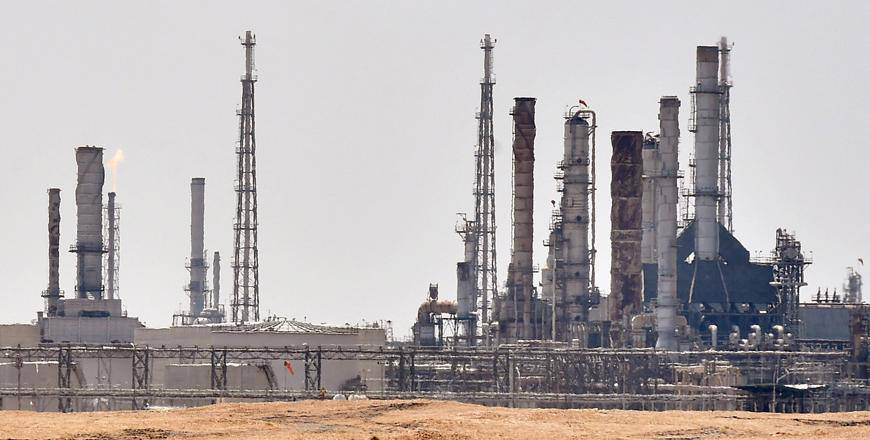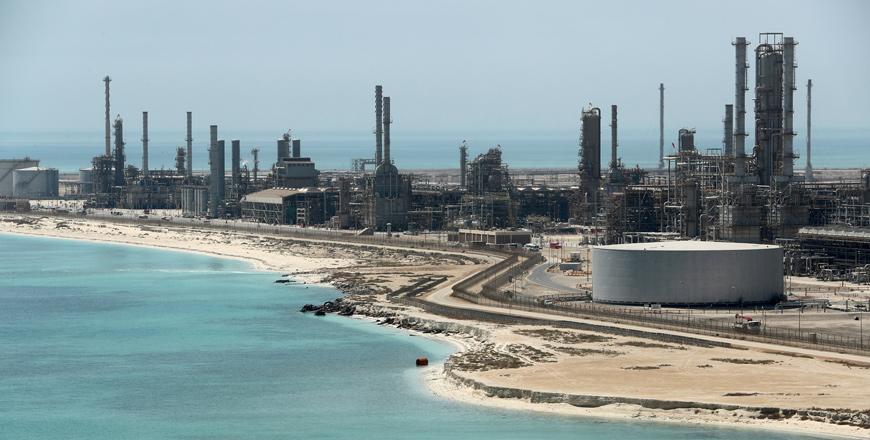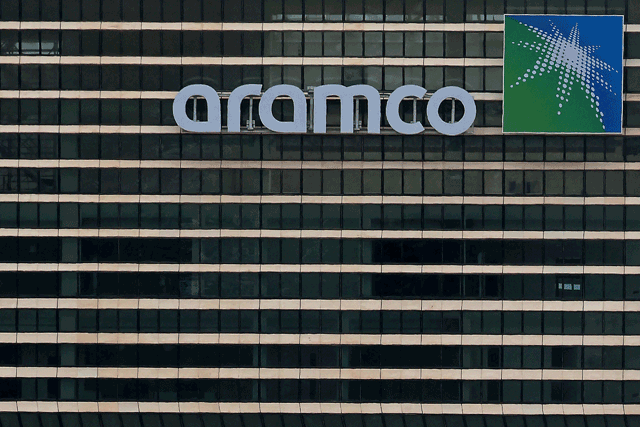You are here
Saudi Arabia seeks new economy with $500b business zone with Jordan, Egypt
By Reuters - Oct 24,2017 - Last updated at Oct 24,2017
RIYADH — Saudi Arabia, seeking to free itself from dependence on oil exports, announced on Tuesday a $500 billion plan to build a business and industrial zone extending into Jordan and Egypt.
The 26,500sq.km zone, known as NEOM, to be powered entirely by renewable energy, will focus on industries including energy and water, biotechnology, food, advanced manufacturing and entertainment, Saudi Crown Prince Mohammed Bin Salman said.
The announcement was the highlight at the opening of a three-day international business conference drawing over 3,500 people from 88 countries.
Prince Mohammed, in a rare public address, hailed it as an example of the innovative high tech future he has promised his highly conservative country.
Speaking on a panel, he said young Saudis and the promotion of moderate Islam were the key to his modernising “dream” for his country, the world’s largest oil exporter. In a brief political comment, he said the country would eradicate extremism soon.
The stakes in the country’s rapid modernisation were high.
“This is a double-edged sword. If they [young Saudis] work and go the right way, with all their force they will create another country, something completely different... and if they go the wrong direction it will be the destruction of this country,” he said.
Holding two phones — one a decade old and one a smart phone — Prince Mohammed said they represented the difference between what NEOM would be and any other such area.
“This project is not a place for any conventional investor ... This is a place for dreamers who want to do something in the world,” he said.
Arranged by Saudi Arabia’s main sovereign wealth fund, the Public Investment Fund (PIF), the conference is labelled the Future Investment Initiative — an effort to present the kingdom as a leading global investment destination.
Saudi Arabia’s economy, though rich, has struggled to overcome low oil prices. Prince Mohammed has launched a series of economic and social reforms — such as allowing women to drive — to modernise the kingdom.
Officials hope a privatisation programme, including selling 5 per cent of oil giant Saudi Aramco, will raise $300 billion.
Saudi Electricity Co., the state-owned utility, said on Tuesday the government would consider selling a large stake in it to the SoftBank Vision Fund, the world’s biggest private equity fund.
Riyadh, meanwhile, is cutting red tape and removing barriers to investment. It said on Sunday it would let strategic foreign investors own more than 10 per cent of listed Saudi companies.
NEOM could be a major focus.
Adjacent to the Red Sea and the Gulf of Aqaba and near maritime trade routes that use the Suez Canal, the zone will serve as a gateway to the proposed King Salman Bridge, which will link Egypt and Saudi Arabia, the PIF said.
Saudi Arabia’s border with Jordan touches the northern end of the Gulf of Aqaba, near the Israeli city of Eilat. It also sits opposite Egypt, across the Straits of Tiran.
“NEOM is situated on one of the world’s most prominent economic arteries ... Its strategic location will also facilitate the zone’s rapid emergence as a global hub that connects Asia, Europe and Africa,” PIF said.
There was no immediate comment on the plan from Jordan and Egypt, which are close allies of Saudi Arabia. Riyadh said it was already in contact with potential investors and would complete the project’s first phase by 2025.
Prince Mohammed appointed Klaus Kleinfeld, a former chief executive of Siemens AG and Alcoa Inc., to run the NEOM project.
Huge resources
Saudi Arabia will need huge financial and technical resources to build NEOM on the scale it envisages. Past experience suggests this may be difficult.
Bureaucracy has slowed many Saudi development plans, and private investors are cautious about getting involved in state projects, partly because of an uncertain legal environment.
But the project underlines Prince Mohammed’s ambition to rescue the economy from severe damage caused by low oil prices. NEOM will reduce the volume of money leaking out of Saudi Arabia by expanding limited local investment options, the PIF said.
A key source of future investment funds for the PIF, which now has about $230 billion of assets under management, is the planned sale of a roughly 5 per cent stake in Saudi Aramco, which could raise tens of billions of dollars.
PIF Managing Director Yasir Al Rumayyan told the conference that Saudi Arabia was still on track to conduct an initial public offering (IPO) of Aramco shares in 2018, but did not say on which stock markets the company would be listed.
Aramco CEO Amin Nasser told reporters that in addition to Riyadh, possible foreign listings in markets such as New York, London, Tokyo and Hong Kong had been looked at, and a decision still had to be made.
Related Articles
RIYADH — Oil giant Saudi Aramco on Sunday kicked off a secondary share offering that could fetch nearly $12 billion, bolstering state financ
DUBAI — A proposed reshuffle of state assets would allow Saudi Arabia to delay the listing of national oil giant Aramco until 2020 or beyond
RIYADH — Saudi Arabia has put a second 4-per cent chunk of shares of the Aramco energy giant, worth tens of billions of dollars, under the c


















